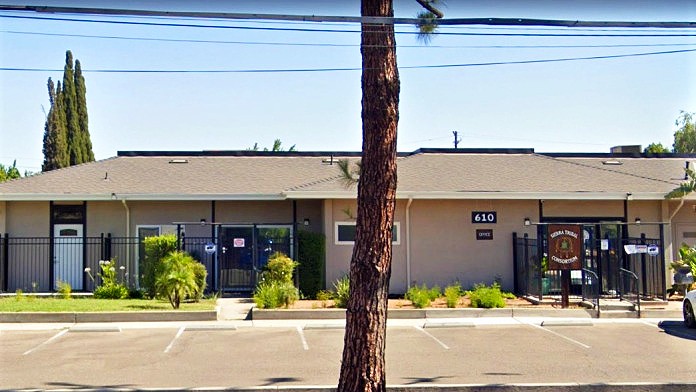About Sierra Tribal Consortium – Recovery Home
Sierra Tribal Consortium’s Recovery Home provides services for Native Americans and Alaska Natives. They boast a two-phased program for treatment focused on inpatient substance use disorder treatment and transitional living. It’s based in Fresno, California.
Criteria for Entering
What I find good to know before your admittance into the inpatient program, is that you must be sober for 72 hours. However, Sierra’s intake coordinator will provide you with tele assistance if you’re having trouble maintaining your sobriety before entering the facility.
Phase One of Inpatient Treatment includes a 30-Day Blackout Period
Following your completion of the screening process, you’ll be part of a 30-day blackout period, which requires no access to phones or personal visits, unless it’s an emergency. This period is a time for you to reflect on what led you to the facility and to familiarize yourself in your new environment of healing. Following this period, you’re only allowed visitation through Zoom.
Phase one of the program provides you with inpatient, evidence-based education and support, along with traditional treatment. The program incorporates both Native American practices and spirituality to assist you in your healing process.
Phase two is for those who’ve already completed 120 days of residency in the program. It provides life skill training, education and support for nine months to prepare you for transitioning into sober living outside of the facility.
12-Step Programs Incorporate Native American Culture and Spirituality
The facility also offers several 12 Step programs including one I find particularly encouraging, positive Indian parenting, which assists parents and families with incorporating native practices into modern living.
In addition, they offer 12 Steps both online (outpatient) and for inpatient participants for anger management, substance use disorders, and a program for building and maintaining healthy relationships. Aftercare workshops take place biweekly in the evenings.
Fresno features several parks and community resources available to you and your family that may be integrated into your recovery and aftercare. They’re in a suburb, but the Fresno Chaffee Zoo isn’t too far away.
Rehab Score
Gallery

Accepted Insurance
Other Forms of Payment
Medicaid is a state based program that helps lower-income individuals and families pay for healthcare. Medicaid covers addiction treatment so those enrolled can use their coverage to pay for rehab. When a program accepts Medicaid the client often pays very little or nothing out of their own pocket.
Medicare is a federal program that provides health insurance for those 65 and older. It also serves people under 65 with chronic and disabling health challenges. To use Medicare for addiction treatment you need to find a program that accepts Medicare and is in network with your plan. Out of pocket costs and preauthorization requirements vary, so always check with your provider.
Military members, veterans, and eligible dependents have access to specific insurance programs that help them get the care they need. TRICARE and VA insurance can help you access low cost or no cost addiction and mental health treatment. Programs that accept military insurance often have targeted treatment focused on the unique challenges military members, veterans, and their families face.
Addiction Treatments
Levels of Care
 Outpatient
Outpatient
 Medically Assisted Detox
Medically Assisted Detox
 Intensive Outpatient
Intensive Outpatient
 Inpatient
Inpatient
Treatments
The goal of treatment for alcoholism is abstinence. Those with poor social support, poor motivation, or psychiatric disorders tend to relapse within a few years of treatment. For these people, success is measured by longer periods of abstinence, reduced use of alcohol, better health, and improved social functioning. Recovery and Maintenance are usually based on 12 step programs and AA meetings.
Drug rehab in California teaches participants constructive ways to stay clean and sober. Treatment revolves around helping individuals stop using the substance they are addicted to and learn healthy habits to avoid relapse.
Many of those suffering from addiction also suffer from mental or emotional illnesses like schizophrenia, bipolar disorder, depression, or anxiety disorders. Rehab and other substance abuse facilities treating those with a dual diagnosis or co-occurring disorder administer psychiatric treatment to address the person's mental health issue in addition to drug and alcohol rehabilitation.
Opioid rehabs specialize in supporting those recovering from opioid addiction. They treat those suffering from addiction to illegal opioids like heroin, as well as prescription drugs like oxycodone. These centers typically combine both physical as well as mental and emotional support to help stop addiction. Physical support often includes medical detox and subsequent medical support (including medication), and mental support includes in-depth therapy to address the underlying causes of addiction.
Substance rehabs focus on helping individuals recover from substance abuse, including alcohol and drug addiction (both illegal and prescription drugs). They often include the opportunity to engage in both individual as well as group therapy.
Programs

Adult Program

Young Adult Program
Clinical Services
Group therapy is any therapeutic work that happens in a group (not one-on-one). There are a number of different group therapy modalities, including support groups, experiential therapy, psycho-education, and more. Group therapy involves treatment as well as processing interaction between group members.
Contact Information
610 West Mckinley Avenue
Fresno, CA 93728




